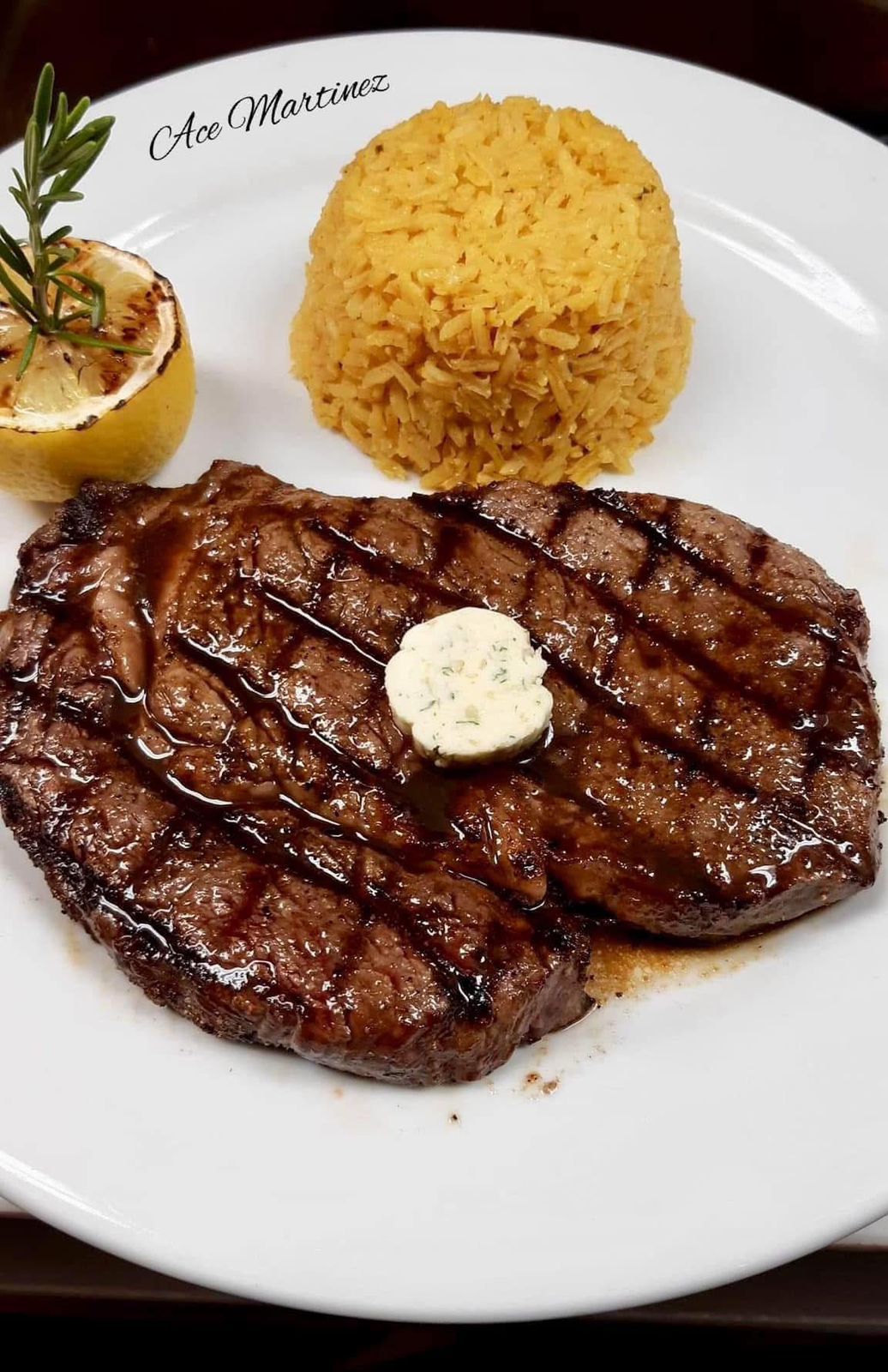ADVERTISEMENT
### **How to Cook the Perfect Ribeye Steak**
#### **Step 1: Prepare the Steak**
1. **Bring to Room Temperature**: Remove the ribeye steaks from the refrigerator about **30 minutes before cooking**. Allowing the meat to come to room temperature ensures even cooking throughout.
2. **Season the Steak**: Pat the steaks dry with paper towels to remove any moisture, which will help achieve a good sear. Season generously with **salt** and **black pepper** on both sides. If you like, you can also add a pinch of garlic powder or your favorite steak seasoning.
#### **Step 2: Preheat Your Pan**
1. **Choose the Right Pan**: The best tool for this recipe is a **cast-iron skillet**, as it retains heat well and provides an even sear. However, any heavy-bottomed pan will work.
2. **Heat the Pan**: Place your skillet on the stove over **medium-high heat**. Let it get really hot—this is key to achieving a golden, caramelized crust on your steak.
#### **Step 3: Sear the Steak**
1. **Add Oil**: Once the pan is hot, add **2 tablespoons of olive oil**. Swirl it around to coat the bottom of the pan.
2. **Sear the Steak**: Carefully place the ribeye steaks in the pan. You should hear a sizzling sound as the meat hits the hot surface. Let the steaks sear for **4-5 minutes** on the first side without moving them—this will allow a deep, flavorful crust to form.
3. **Flip the Steak**: Using tongs, flip the steaks over. Immediately add **2 tablespoons of butter**, the **garlic cloves**, and a few **sprigs of fresh thyme or rosemary** (if using) to the pan.
4. **Baste the Steak**: As the butter melts, use a spoon to baste the steaks with the butter and juices. This helps keep the steak juicy and infuses it with rich flavor. Continue cooking for an additional **3-4 minutes** for a medium-rare steak, or longer for your desired level of doneness.
#### **Step 4: Check for Doneness**
1. **Use a Meat Thermometer**: The best way to ensure your ribeye is cooked perfectly is to use a meat thermometer. Here are the recommended temperatures for different doneness levels:
– **Rare**: 120-125°F (49-52°C)
– **Medium-Rare**: 130-135°F (54-57°C)
– **Medium**: 140-145°F (60-63°C)
– **Medium-Well**: 150-155°F (66-68°C)
– **Well Done**: 160°F (71°C) and above
2. **Rest the Steak**: After cooking, remove the steaks from the pan and let them **rest for 5-10 minutes**. Resting helps redistribute the juices, ensuring a tender and juicy bite.
—
### **Serving Suggestions**
While your Ribeye steak is delicious on its own, you can easily elevate the meal with some simple sides:
– **Garlic Mashed Potatoes**: The creamy potatoes complement the rich flavors of the steak.
– **Grilled Vegetables**: Asparagus, mushrooms, or Brussels sprouts are great pairings.
– **Caesar Salad**: A fresh and crisp salad is a light contrast to the richness of the steak.
– **Steak Sauce or Compound Butter**: For an extra layer of flavor, serve your steak with a drizzle of steak sauce or a dollop of homemade garlic herb butter.
—
### **Why This Ribeye Steak Recipe Is a Must-Try**
This **Ribeye Steak** recipe is an easy yet elegant way to enjoy one of the most flavorful cuts of beef. With just a few simple ingredients and the right technique, you can make a perfectly seared steak that’s both juicy and tender. Whether you’re celebrating a special occasion or just treating yourself to a well-deserved meal, this recipe ensures you’ll enjoy a restaurant-quality steak from the comfort of your home.
—
### **Final Thoughts**
The **Ribeye Steak** is truly a meat lover’s dream, and this recipe will help you cook it to perfection every time. The combination of seasoning, a hot pan, and basting in butter results in an irresistible crust and a juicy, tender interior. Don’t lose this recipe—it’s a keeper that you’ll want to return to time and time again!
ADVERTISEMENT
